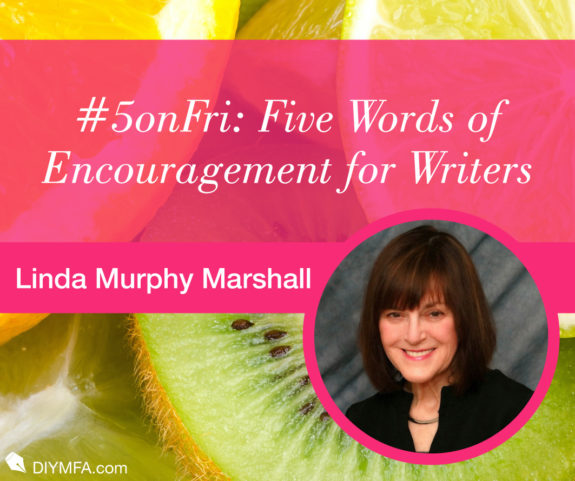I’ve always been a lover of inspirational sayings; through the years I’ve collected a wide variety of these words of encouragement to bolster my sometimes flagging attitude.
One of my favorites is attributed to the 30th President of the U.S., Calvin Coolidge. The gist of it is that nothing in the world can take the place of persistence—not talent, not genius, not education. The quote ends with: “Persistence and determination alone are omnipotent.”
His words may have been written in the early 20th century, more than one hundred years ago, but are still valid, especially for writers.
The tips I outline below grew out of Coolidge’s philosophy.
1. Welcome rejection.
I’ve read about “clubs” among writers in which they challenge colleagues to aim for 100 rejections from publications during a single calendar year.
Although I don’t officially belong to any of these groups, I also strive for 100 rejections.
This isn’t to say that I submit haphazardly to any and all publications, throw pasta on the wall to see what sticks. I do my research and determine which journals and/or publications might be a good fit for my essays, stories, essay collections, or book chapters, and then act accordingly. And of course, I thoroughly review and edit my writing before I submit it.
But I don’t let the fear of rejection hold me back when deciding when/where/how many pieces to submit.
I take risks.
I believe that if you only submit a dozen or so times a year, each rejection is that much more painful, and carries that much more weight. That’s not to say that I look forward to rejections, but I’m not devastated when one arrives in my email queue (or via snail mail) because I have other pieces out in the world that I’m equally proud of.
Following a rejection, I then make a note of the journal in question, as well as the submission that was rejected. If an editor had any constructive comments, I make note of those also, and thank him or her. I may review my submission yet again at that point to make sure I didn’t miss any inconsistencies or errors.
My point, though, is that it’s not the end of the world when I receive a rejection since I’ve sent out a healthy number; that way each submission isn’t quite so precious.
2. Ignore unkind comments.
Once in a long long while, I’ll receive a rejection that seems personal, even though submissions are anonymous. Maybe they’re tired of reading about COVID, or dysfunctional families, or the plight of single parents, etc. Something strikes a discordant note, and a journal staffer might have harsh words for me, the writer.
Again, this is very rare, but when it happens I try to take it in stride and, ideally, tell myself that the editor or reader was just having a bad day when she wrote that “any idiot knows such and such” about one of the sentences in my piece. Or maybe he/she was just sick of whatever the topic of my essay or story was.
Lastly, maybe there was a kernel of truth in the criticism, once I excavate it from the sender’s harshness; I look for that kernel.
3. Don’t be in a hurry.
I once submitted an essay to a publication and they accepted it a year after I submitted it. I don’t know if it was lost in the slush pile and then rescued by a new editor, or if they reevaluated its merit. I didn’t ask, and was just happy they wanted to publish it.
In all the cases I’m familiar with, journals are run by hard-working volunteer staff and, even if they are paid, it’s not much, so I try to adopt an attitude of gratitude and patience while waiting to hear back about my submissions.
4. Don’t obsess about your age (especially if you’re a certain age).
I’m a Baby Boomer and some (thankfully, not all) people erroneously think that those of us past a certain age should be otherwise engaged: sitting in rocking chairs, knitting booties, watching television nonstop, having lunch out with friends regularly, frittering away our days on mindless activities.
Fortunately, it’s a rare attitude, but it does happen.
Regardless, that’s not me. That will never be me. I have a husband, children, and grandchildren I adore, and hobbies I enjoy, but I also am a full-time writer.
A corollary to this rule is that those who think you need decades under your belt to reach a certain level in a career—say, writing—are mistaken. Do what you want with your life while you can; spend your time doing what you enjoy.
For me, writing is one of those things. In my case, I had a fulfilling and long career as a translator and linguist, working with more than a dozen languages, and traveling all over the world, but I always wanted to be a writer, too, and did it unofficially for decades. But, when the time was right, writing became my principal vocation.
My point is that only you know your background, and only you can decide what you want to do with the rest of your life.
5. Don’t automatically expect your work to be received with constant or far-reaching accolades, but always work towards that goal.
Your hard work, waiting, and persistence might not yield the Pulitzer Prize or the National Book Award, but hopefully, that’s not the reason you write.
Another of my favorite quotes by Ralph Waldo Emerson sums it up: “The reward of a job well done is to have done it.”
Usually, that’s enough impetus for me. I have essays I’ve worked on for hours, days, months, and they’re languishing in my drawer (or on my computer), not yet picked up by anyone for publication. But I know in my heart they’re good. I view them as my foster children; they have so many wonderful traits and I just have to keep trying to find the right home for them. In the meantime, they haven’t lost their luster just because the New York Times isn’t knocking down my door to publish them.
The bottom line for me continues to be: “If at first, you don’t succeed, try, try again.” Or, to quote the rallying cry adopted by feminists in 2017 after Mitch McConnell used it to describe Senator Elizabeth Warren’s unwillingness to be silenced: “Nevertheless, she persisted.” I know I wouldn’t have accomplished half of what I’ve achieved—in writing and with other lifetime endeavors—if I hadn’t been persistent.
Tell us in the comments: What words of encouragement help you?

Linda Murphy Marshall is a multi-linguist and writer with a PhD in Hispanic languages and literature, a master’s in Spanish, and an MFA in creative writing from Vermont College of Fine Arts. Her work has been published or is forthcoming in The Los Angeles Review, Maryland Literary Review, the Ocotillo Review, Chestnut Review, Adelaide Literary Magazine, Flash Fiction Magazine, Bacopa Literary Review, PopMatters, Storgy [UK], The Bark Magazine, Catamaran Literary Reader, and Critical Read. She was featured in American Writers Review, where she was an Honorable Mention for the 2019 Fiction Contest. She was long-listed in Strands Publishers’s 2021 International Flash Fiction Contest, and was a finalist in the 2020 Annual Adelaide Literary Contest for one of her essays. In addition, she is currently a reader for Fourth Genre and a translation editor for the Los Angeles Review. Her sketches and paintings have been featured in art shows and galleries. She lives in Columbia, MD.
You can find her on her website or follow her on Facebook.







